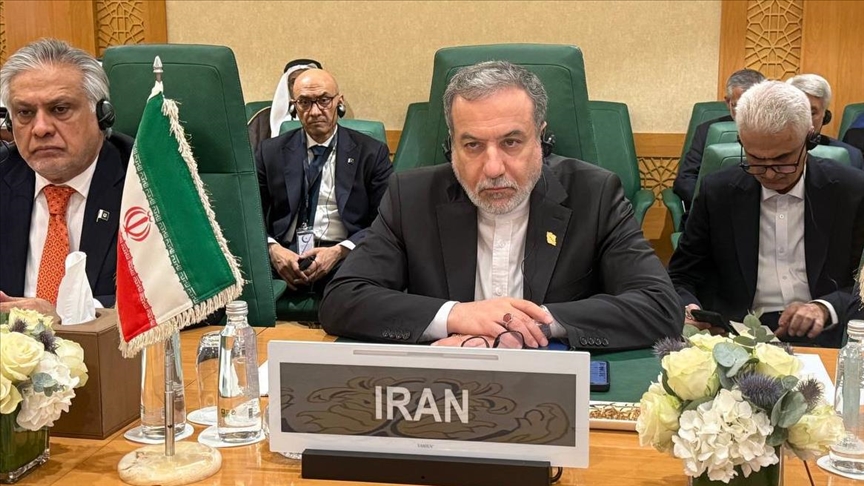Iran says reimposing Western sanctions ‘dangerous precedent,’ undermines trust in international system
UN vetos draft resolution to delay ‘snapback’ sanctions against Iran

ISTANBUL
Iranian Foreign Minister Abbas Araghchi condemned Western attempts Friday to reinstate international sanctions on Tehran, warning that it sets a “dangerous precedent” and undermines trust in the entire global order.
Araghchi said Tehran was forced to scale back its nuclear commitments in line with recognized rights, but insisted the country had remained compliant even after Washington withdrew from a 2015 nuclear deal.
“The United States’ persistent rejection of every diplomatic initiative has proven that negotiations with Washington only lead to dead ends,” Araghchi said at a UN Security Council session on non-proliferation. He accused the E3 -- Germany, France and the UK -- of choosing confrontation instead of dialogue.
The minister called attempts by the US and European powers to reimpose sanctions “legally void, reckless, and null and void,” urging the Security Council president to declare Friday's decision unlawful.
Araghchi stressed that Iran would “never respond to threats or pressure” and noted that the Security Council risks losing its credibility and authority if it enforces what he described as illegal measures by force.
The Security Council vetoed a draft resolution Friday to extend the 2015 Joint Comprehensive Plan of Action (JCPOA) on Iran's nuclear program until April 18, 2026.
The draft resolution, submitted by Russia and China, aimed to also delay the “snapback” mechanism of sanctions against Iran, which is set to take effect Sept. 28, that France and the UK had triggered.
The draft resolution received four votes in favor, nine votes against, with two abstentions.
Nine members of the Council -- the UK, France, Denmark, Slovenia, Sierra Leone, Panama, the US, Greece and Somalia -- voted against.
The E3 are signatories to the 2015 nuclear agreement, which placed limits on Iran's nuclear activities.
Under the pact, endorsed by the UN Security Council, Iran agreed to limit its uranium enrichment and allow international inspectors to verify that its nuclear program served only peaceful purposes.
After US and Israeli attacks on Iran, Tehran halted cooperation with the UN nuclear watchdog, claiming that the International Atomic Energy Agency (IAEA) was biased against it.
On Aug. 28, the E3 countries triggered the “snapback” mechanism under UN Security Council Resolution 2231, which will restore sanctions in 30 days if Iran fails to meet its obligations.








